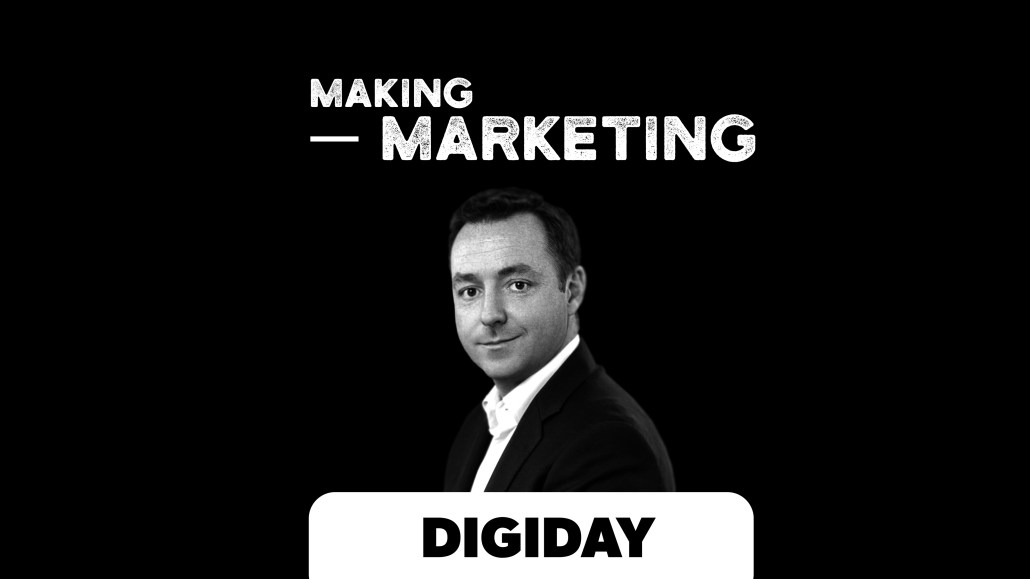Secure your place at the Digiday Media Buying Summit in Nashville, March 2-4
Heineken’s Jonnie Cahill: Bringing data and advertising in-house isn’t sustainable

Subscribe: iTunes | Google Play | Stitcher | RSS | Anchor
Jonnie Cahill, the new CMO for Heineken USA, is charged with marketing one of the world’s largest beer brands in one of the largest beer markets. According to Cahill, in a market with so much variety, the most important thing is making sure that people still love the product.
“We know, and we believe as an organization that people are drinking from a repertoire. So for us, we have a different media strategy by brand depending on the profile of those consumers; ethnicity, location, geography, but also passion points. We try to go back to fundamental principal which is, what is the connection moment, what do they care about?”
In this episode, Cahill discusses Heineken’s global focus, the specific challenges of the U.S. beer market, and the importance of knowing your customer.
Below are excerpts from our conversation with Cahill, edited for clarity.
How customer feedback has become faster than ever
“It’s like that moment when you know there’s a fish on the line, and it’s the weight of the pull that tells you, ‘whoa, we’ve got something here’, and you get that feeling very quickly here. In one way, we’re very fortunate that we’ve got a distributer network that understands the industry, and gives us feedback from the stores. But we also get feedback from our online channels that tell us much more quickly. We used to not know what was going on. You were waiting for a year to find out from Nielsen what was going on, and now we know is weeks, and that is exciting. You don’t know if you’re right, but you know if you’re getting traction. ”
Getting to know your customer through first party data
“What we try to do is make sure that we have really high quality first party data. That’s interesting because you don’t always hear the word ‘quality’ when it comes to data strategy. You hear the words ‘quantity’ and ‘millions’ and ‘how many’. Well, ‘how good’ is also an important question.”
Bringing beer to the e-commerce market
“I think if we look to the U.S. market, e-commerce and beer is relatively under-developed, which is interesting because in general e-commerce over-indexes here. For us, we’re making a play into convenience and into draft at home. So we’ve started with solution first, and used e-commerce as a way to bring those solutions to particular markets.”
The trouble with going in-house
“When it comes to in-sourcing, I think you’re looking to make sure there’s a layer of expertise in your organization that will allow you to be creative, to be relevant, to deploy your media in the right way. So there is definitely an argument, and, if you will, an increasing movement to bring things like data and advertising in house, but how sustainable is that? I think you’ll see more in-sourcing, and more stuff coming into the organizations, but will it be the full service deployment? That’s complex, and it has a multi-dimensional impact on your organization. If you’re going to begin to in-source stuff, the questions have to be, with what purpose, and what happens next?”
More in Marketing

Future of Marketing Briefing: AI’s branding problem is why marketers keep it off the label
The reputational downside is clearer than the branding upside, which makes discretion the safer strategy.

While holdcos build ‘death stars of content,’ indie creative agencies take alternative routes
Indie agencies and the holding company sector were once bound together. The Super Bowl and WPP’s latest remodeling plans show they’re heading in different directions.

How Boll & Branch leverages AI for operational and creative tasks
Boll & Branch first and foremost uses AI to manage workflows across teams.







